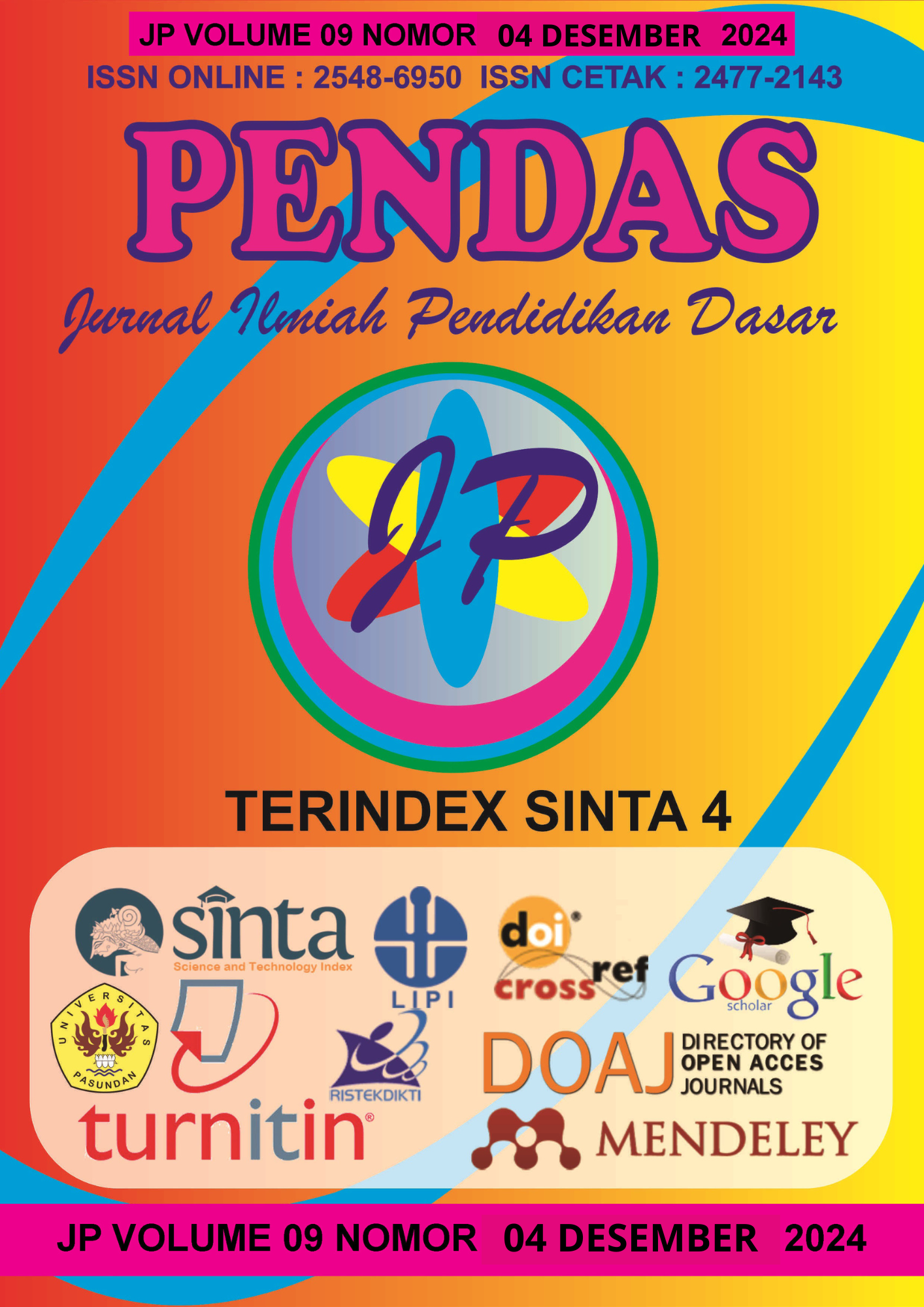PENGARUH PEMBELAJARAN BERBASIS KONSTRUKTIVISME TERHADAP PEMAHAMAN KOSAKATA SISWA MADRASAH IBTIDAIYYAH
Keywords:
Constructivism, Vocabulary Understanding, Learning, Madrasah IbtidaiyyahAbstract
This study aims to determine the influence of constructivism-based learning on the vocabulary understanding of Madrasah Ibtidaiyah (MI) students. The method used in this study is an experimental method with a pretest-posttest design. The subjects of the study were MI grade IV students who were divided into two groups: an experimental group that applied constructivism-based learning and a control group that used conventional methods. The results showed that there was a significant improvement in the vocabulary understanding of students who were taught with a constructivist approach compared to the control group. This research is expected to contribute to the development of Indonesian learning methods in MI.
Downloads
References
Anderson. (2023). Formative Assessment in Constructivist Learning Environments. Journal of Assessment in Education.
Brown,. (2018). The Role of Social Media in Constructivist Learning. Journal of Digital Learning.
Creswell. (2018). Research Design: Qualitative, Quantitative, and Mixed Methods Approaches. Thousand Oaks. SAGE Publications.
Davis. (2019). Theoretical Foundations of Constructivism. Educational Theory.
Field. (2018). Discovering Statistics Using IBM SPSS Statistics. SAGE Publications.
Garcia, R. (2022). Project-Based Learning in Constructivist Frameworks. Journal of Project-Based Learning.
Harris, A. (2016). The Importance of Vocabulary Development in Early Literacy. Journal of Language and Literacy Education, 12(1), 45–58.
Hidayati, N. (2018). The Role of Constructivist Learning in Vocabulary Mastery. International Journal of Language and Linguistics, 5(3), 150–158.
Johnson. (2017). Strategies for Implementing Constructivist Learning. Journal of Educational Strategies.
Kumar,. (2022). Multicultural Education and Constructivist Approaches. Journal of Multicultural Education.
Lee. (2023). Developing 21st Century Skills through Constructivist Approaches. Journal of Modern Education.
Miller, A. (2020). Social and Emotional Learning in Constructivist Classrooms. Journal of Educational Psychology.
Nguyen,. (2021). Onstructivism in STEM Education. International Journal of STEM Education.
Nugroho, A. (2017). Challenges in Vocabulary Acquisition among Elementary School Students. Indonesian. Journal of Education and Learning, 1(2), 123–130.
Patel. (2023). Technology’s Role in Constructivist Learning Environments. Journal of Educational Technology.
Pratiwi. (2021). Implementasi Pembelajaran Konstruktivisme dalam Meningkatkan Kosakata Siswa MI. Jurnal Pendidikan dan Pembelajaran, 9(1), 45–60.
Rahmawati. (2022). Pengaruh Pembelajaran Konstruktivisme terhadap Kemampuan Berbahasa Siswa MI. Jurnal Ilmiah Pendidikan, 10(2), 112–120.
Roberts. (2021). Personalizing Learning through Constructivism. Journal of Educational Innovation.
Sanjaya. (2016). Konstruktivisme dalam Pembelajaran: Teori dan Praktik. Kencana.
Sari. (2019). Motivasi Belajar Siswa Melalui Pendekatan Konstruktivisme. Jurnal Pendidikan Dasar, 6(1), 75–82.
Smith. (2016). Active Learning in Constructivist Classrooms. Educational Research Review.
Thompson. (2019). Critical Thinking and Problem Solving in Constructivist Learning. Educational Research Journal.
Widiastuti. (2020). Collaborative Learning in Constructivist Approach: Enhancing Vocabulary Skills. Journal of Educational Research, 8(2), 99–107.
Williams. (2020). Differentiation in Constructivist Classrooms. Journal of Inclusive Education.
Downloads
Published
Issue
Section
License
Copyright (c) 2025 Pendas : Jurnal Ilmiah Pendidikan Dasar

This work is licensed under a Creative Commons Attribution 4.0 International License.














































